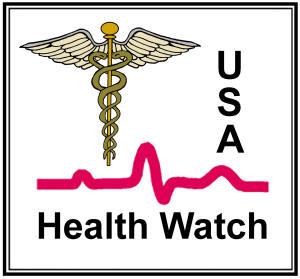

The Healthwatch USA webinar, marking its 20th
anniversary, addressed pressing challenges in infectious disease control
and the current state of public health in the United States. Dr. Kevin
Kavanagh underscored the setbacks in healthcare infrastructure and
highlighted critical topics such as vaccination, worker safety,
elimination strategies, bird flu, phage therapy, and the widespread
impact of misinformation and disinformation on public health
initiatives.
Recent events have shaken the CDC, including an armed attack, staff
layoffs, and significant leadership changes, making the role of local
and state public health efforts more essential.
The introduction also explored the efficacy of masks in preventing
disease transmission. Emphasizing that mask effectiveness depends on
correct and consistent use, the type of mask, and exposure duration.
Large studies and reviews cited found that N95 masks, in particular,
significantly reduce the transmission of pathogens spread through the
air.
Dr. Kavanagh also discussed the complexities of conducting randomized
controlled trials for public health measures like masking, noting
ethical and practical challenges. Despite some reviews finding mixed
results, several major studies and comprehensive analyses support
mask-wearing—especially high-quality masks—for reducing virus spread.
Dr. Kavanagh concluded that layered infection control strategies,
combining masking with ventilation and other measures, and advised the
public to wear N95 masks for short-term exposures should be implemented
during pandemics.
Key Points from Webinar
Introduction
• The webinar marks the 20th
anniversary of Healthwatch USA, focusing on infectious disease
challenges and progress.
• Topics addressed include vaccinations, worker safety, elimination
strategies, bird flu, phages as treatment for antibiotic resistance, and
public health misinformation.
• Misinformation and disinformation have significant impacts on public
health efforts, sometimes leading to violence and the enactment of
ineffective policies.
• Recent CDC events include armed attacks, layoffs, leadership changes,
& being asked to endorse controversial policies.
• Masking as a public health strategy faces difficulties in compliance
and study design, impacting trial results.
• Evidence suggests that mask effectiveness depends on correct and
consistent use, type of mask, and exposure time.
• A layered approach—using multiple strategies simultaneously—is
essential for effective infection control.
• Randomized controlled trials for masking are challenging due to
ethical and practical considerations.
• Large studies and reviews show that masks, especially N95 respirators,
reduce transmission of respiratory pathogens.
• Ivermectin trials have failed to show benefit in treating COVID-19,
suggesting research should focus elsewhere.
• Improved air quality and ventilation should complement masking,
particularly in healthcare settings.
• Short-term use of N95 masks for specific situations remains a
recommended public health strategy.
YouTube Video: https://youtu.be/pwwfqwMo5rc
Health Watch USAsm Webinar, Combating Infectious Disease
Challenges. Have we gone twenty steps forward or backwards? Aug.
29, 2025
Download Slides
Presentations from additional countries can be viewed at:
https://www.healthwatchusa.org/conference2025/index.html
All information contained on this website is the express opinion
of the presentor and not necessarily that of
Health Watch USA Inc. a Kentucky Non-Profit Organization
The Video Above is a Health Watch USAsm Video.
Health Watch USA is a non-profit 501-C3 Organization based in Kentucky